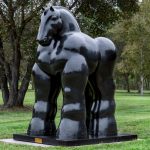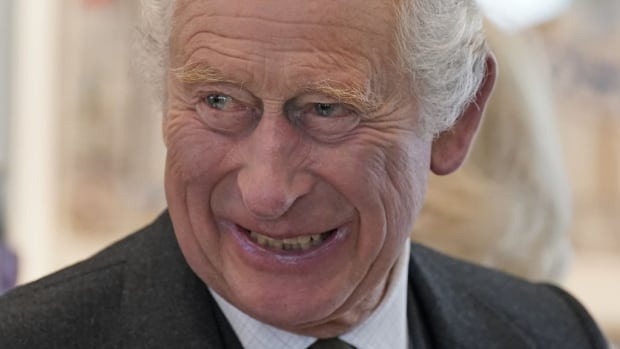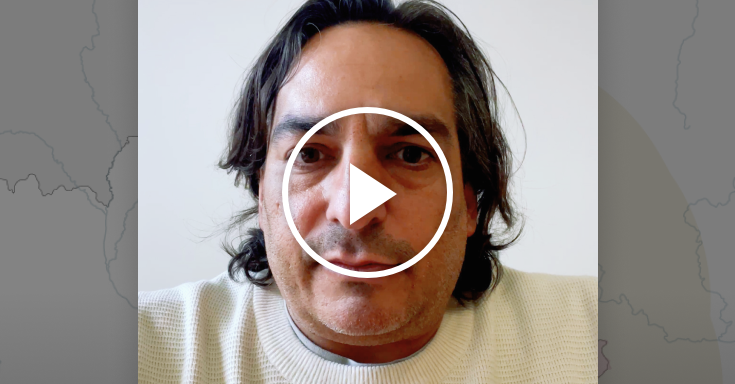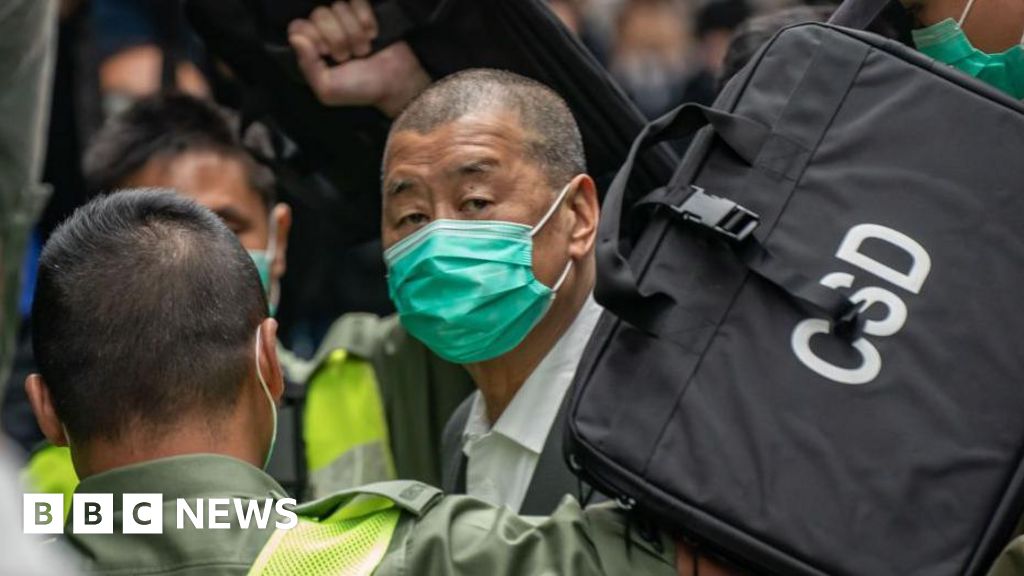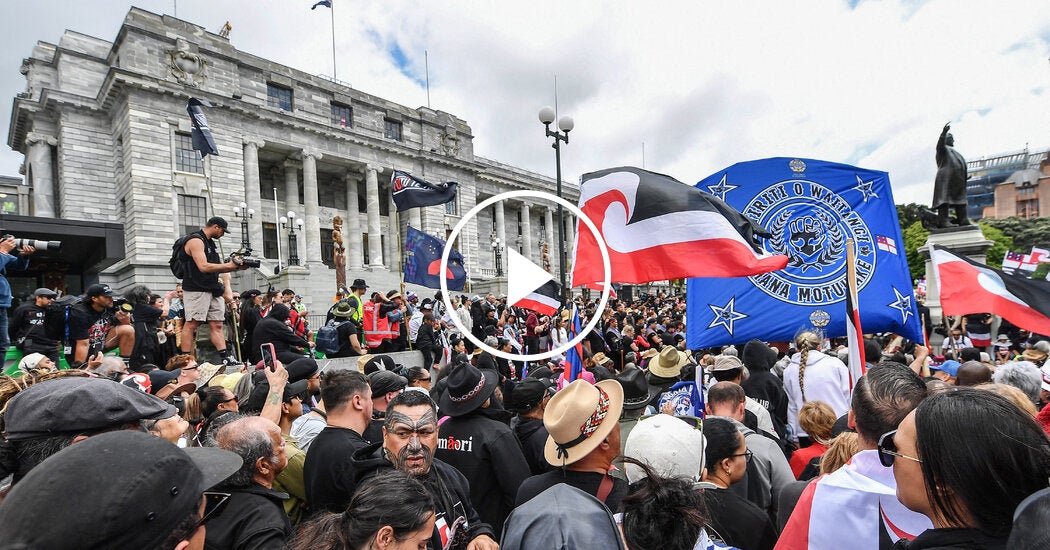Hello, royal watchers. This is your regular dose of royal news and analysis. Reading this online? Sign up here to get this delivered to your inbox.
When Queen Elizabeth died a year ago and her son, Charles, became King, there was inevitable uncertainty about what the transition to a new monarch would mean, coming as it did after her 70-year reign.
Many saw the possibility for major change, whether it was because of scrutiny that surrounds the monarchy and the question of its relevance today, or just Charles’s own nature.
But one year on, that hasn’t been the case.
“He really has set a very neutral course. I think many people were expecting a lot of reform, a lot of change, in the way that he had advocated for as Prince of Wales,” royal commentator Justin Vovk said in an interview.
“But I think really keeping things balanced has become his hallmark, keeping things uncontroversial and keeping the institution stable.”
Vovk, a PhD candidate at McMaster University in Hamilton who specializes in the history of the monarchy, sees King Charles, 74, following a mantra of hard work, keeping his head down and avoiding controversy.
“He’s steering the ship, but he’s not rocking it very much.”
It has been one year since the death of Queen Elizabeth, and while it’s largely been a smooth transition to King Charles, questions remain about the future of the monarchy.
That there would be uncertainty around how Charles would be as King is hardly surprising.
“I think there was genuinely some concern or anxiety about merely having the new monarch, because it was a new experience for so many,” said Craig Prescott, a constitutional expert and lecturer in law at Royal Holloway, University of London, in an interview.
But there haven’t been any major changes, he said, and it’s “all been fairly low-key.”
None of this is to say there aren’t differences in the new reign. Charles is his own person and came to the throne at age 73 as a high-profile and well-established public figure, unlike his mother, who inherited the throne as a much-less-known 25-year-old.
Prescott sees a “sharpness” in how Charles is carrying out his role within its confines, something that had been a looming question for many years, given his well-known views as Prince of Wales and his penchant for speaking out on issues such as climate change.
“You got the idea that he’s … maintaining that political impartiality in the party-political sense,” said Prescott, “but just being sharper about how he’s going about things within that limitation.”
Prescott saw that at play in Charles’s first overseas visit, a trip to Germany in March that was considered a success on the diplomatic front.

“His speech to the Bundestag … it actually had some real content about it,” Prescott said, noting a “clear message” that while the United Kingdom has left the European Union, it has not left Europe, along with references to the war in Ukraine.
“The fact that he did it in German was of course just another element of sharpness.”
Domestically, Prescott sees a similar sensitivity.
“There’s that example of making that donation to food banks, which was a recognition of the cost of living and something not party-political, but still making that point that, you know, we’re aware of what’s happening, we’re aware of the cost of living crisis.”
Along with the continuity Charles has established, there has been “subtle and meaningful change as befits a 74-year-old experienced royal,” said Chandrika Kaul, a modern British, imperial and media historian and professor at the University of St. Andrews in Scotland.
Kaul saw such change emerging at various moments, whether it was the unprecedented livestreaming of the announcement of Charles’s accession two days after his mother’s death or the coronation ceremony in May, which was “much more streamlined,” she said in an interview.

The post-coronation blessing in Westminster Hall was, Kaul also noted, conducted by a range of multi-faith leaders and something that had not happened at any previous coronation.
“This is in keeping with obviously responding to popular opinion and culture,” she said.
“In the 21st century, to be productive and popular is the holy grail. And I think that’s what they’re trying to do.”
None of this is to say there aren’t significant challenges ahead for Charles.
Vovk sees those challenges coming down to “continuing to show the British people, and specifically people under the age of 35, that the monarchy is relevant; that the monarchy is an important part of both the British and the Canadian national identities; and financially that it’s worth keeping around.”

There is also the question of the Commonwealth, and the lack of any Commonwealth visit by Charles so far — or the announcement of one — caught Prescott’s attention.
“The longer that goes on, the more interesting that question becomes, because it’s perfectly legitimate … for the other countries of which the King is head of state, for them to … see their monarch,” he said, nodding particularly toward Canada and Australia.

The Commonwealth, Prescott added, poses another challenge for Charles in managing any transition any realm might make to a republic, an issue that is also “wrapped up in questions of slavery and reparations, which becomes very difficult politically.”
Kaul said it’s understandable for people to review a monarch after the first year.
“But we mustn’t forget that this is a very different kind of monarch because he’s been in public service and doing his royal duties for over 50 years,” she said.
“The fact that Charles has managed to stabilize the ship, if you like, of state, or of the monarchy … after such a dramatically long reign is all to his credit.”
Remembering Queen Elizabeth

King Charles marked the first anniversary of his mother’s death on Friday with a message from the Balmoral estate where she died, and the release of a rarely seen portrait of the longest-serving British monarch.
Charles and Queen Camilla also greeted members of the public after attending a church service near Balmoral.
In Charles’s message, he said: “In marking the first anniversary of Her late Majesty’s death and my accession, we recall with great affection her long life, devoted service and all she meant to so many of us.
“I am deeply grateful, too, for the love and support that has been shown to my wife and myself during this year as we do our utmost to be of service to you all.”

Kaul said the message confirms her assessment of Charles’s reign so far.
“He is his own man and is proud to reaffirm his commitment to follow in his mother’s footsteps,” she said via email Friday morning.
“There is a confidence in the way he accepts the burdens of history — in the sense that his mother’s 70-year reign is to be celebrated, admired and emulated — not to be threatened by it.”
The portrait that accompanied the message was taken by Cecil Beaton in 1968. It had a showing in the National Portrait Gallery in London after it was taken, but had not been released publicly until now, the Daily Mail reported.
Prince William and Catherine, Princess of Wales, attended a service Friday in Elizabeth’s honour at St. Davids Cathedral in St. Davids, Wales. Other members of the Royal Family also shared tributes to Elizabeth on social media.

In Ottawa, Gov. Gen. Mary Simon also issued a message, describing Queen Elizabeth as “a reassuring and steadfast constant during her more than 70-year reign.”
“Across Canada, moments of silence were observed, memories were shared and tributes were offered for a leader who left behind a legacy of public service in Canada, the Commonwealth and throughout the world,” Simon said.
“Yet, as we said goodbye, we also turned to the future, and acknowledged the accession of His Majesty King Charles III,” Simon said, noting his “keen interest in Canada and issues of common concern, such as climate change, diversity and inclusion, and education.
“But in the past year, he has also shown his dedication to public service through his personal commitment to reconciliation, dialogue and rebuilding the Crown-Indigenous relationship.”
Family matters — Part 1: Prince Harry

As much as King Charles has had official duties to manage in his first year on the throne, there are also family matters that have led to additional scrutiny on the House of Windsor.
Charles’s younger son, Prince Harry, was back in the U.K. last week, before heading to Germany for the Invictus Games, the sporting competition he founded for wounded, injured and sick soldiers and veterans.
Harry was in London Thursday night for the WellChild Awards ceremony, and told those gathered there that the late Queen was “looking down on all of us.” According to media reports, he was also spotted in Windsor on Friday, leaving St. George’s Chapel, where Elizabeth, and her husband, Prince Philip, are buried.
There was little sense, however, that Harry’s time in England would offer significant potential for change in the strained relationship with his family.
Over the past several months, Harry and his wife Meghan, Duchess of Sussex, who now live in California, have returned — via their Netflix docuseries and Harry’s memoir Spare — to a well-trodden ground of grievance against the Royal Family and raised repeated concerns about issues such as racism and media intrusion into their lives.
In the face of that, Charles has offered no public comment.

“Obviously he and [older son Prince] William have sat and thought how to do this and thought if we just carry on, do what we do, then in the long run it will play out,” said Prescott.
“I suppose the temptation was there to retaliate. But they’ve focused on what’s important, which is the monarchy. And I think in a way that captures the problem — that if you’re royal, as long as you’re royal, you remain relevant. And that unless you’ve got something else, once you’re no longer royal, you can lose your relevancy and interest wanes.”
Kaul said Charles’s maturity and experience is reflected in how he has handled the personal crisis surrounding Harry, by “adhering to the motto that silence is golden.”
“He just refused to be drawn at any stage into that controversy.”
Family matters — Part 2: Prince Andrew
Elsewhere in the Royal Family, the Prince Andrew question keeps recurring: Is Charles’s brother, whose public reputation sank like a stone in the wake of his friendship with the late convicted sex offender Jeffrey Epstein, angling for a return to public life?
Last year, a sex abuse lawsuit against him was settled out of court, avoiding a trial but leaving lingering questions.
Most recently, Andrew’s appearance beside Prince William as he drove to church in Scotland drew particular scrutiny.
“The question of optics is an important one here because it’s one thing if Andrew is in the car with his daughters or … cousins or [people] like that, but to be with the heir to the throne — that’s a privileged position,” said Vovk.
“I suppose the argument could be made that they were just attending church privately as a family, but there’s not much they do that really counts as private. What is private? What is public? So Charles will have to be … very careful moving forward about even unspoken support he may be giving to Andrew.”

With Andrew, said Prescott, “there’s the fundamental question, what do you do with him? Because he’s in a sort of internal exile — no public duties anymore and seemingly no private interests of any sort to get off the ground.”
The difficulty, Prescott said, is that Charles can’t necessarily go too far with Andrew.
“You … want to sort of keep him under control in some way, and that’s the difficulty, really, because there’s not much that they can offer him.”
Prescott sees no prospect of Andrew coming back in any formal public role, and that the focus of the monarchy will be on the seven leading figures of the Royal Family: King Charles and Queen Camilla; Prince William and Catherine, Princess of Wales; Prince Edward and Sophie, the Duke and Duchess of Edinburgh; and Princess Anne.
The fact that the Counsellors of State Act 2022 was passed to add Edward and Anne, allowing them to carry out official duties if necessary in the King’s stead, “showed that there’s no prospect of Prince Andrew coming back in that way,” said Prescott.

Royally quotable
“The beauty of Canada is not limited to its landscapes; its true beauty lies in the strength and resilience of Canadians and the care and concern they show to one another in the face of adversity.”
— King Charles, in a message after states of emergency were declared in the Northwest Territories and British Columbia because of wildfires.
Royal reads and listens
-
King Charles will be deploying his French language skills when he addresses France’s Senate on a royal state visit later this month. [BBC]
-
Plans for a permanent U.K. memorial to the late Queen Elizabeth and a national legacy program in her honour will be unveiled in 2026 to mark what would have been her centenary year. And an airport in France will be renamed in her honour after receiving permission from King Charles, officials in the town have said. [ITV, BBC]
-
London’s Metropolitan police force has come under fire after announcing it has discontinued its investigation into cash-for-honours allegations involving Charles’s charity, the Prince’s Foundation. [The Guardian]
-
Prince Harry has described how returning from his final military tour of Afghanistan triggered an “unravelling” related to the trauma of losing his mother when he was 12. [ITV]
-
Doodles found in a 16th-century prayer book by an Ottawa professor offer new insights into King Henry VIII’s inner life in the last years before he died. [CBC Radio]
-
A trip to a Beyoncé concert by Prince Harry and Meghan has triggered a wave of good PR and positive social media posts — and even their most hated U.K. tabloid has announced “her big Hollywood comeback.” [Newsweek]
-
The death of Diana will be recreated delicately in Season 6 of The Crown following a “very careful” conversation, an executive producer of the Netflix drama series has said. [ITV]
Sign up here to have The Royal Fascinator newsletter land in your inbox every other Friday.
I’m always happy to hear from you. Send your questions, ideas, comments, feedback and notes to royalfascinator@cbc.ca. Problems with the newsletter? Please let me know about any typos, errors or glitches.



